There is a lot of confusion around losing weight with low-carb diets and calorie restriction. Today I will dive into the topic of calorie deficit vs keto, plus explain the difference and help you clarify which one should you choose.
As a general rule, both calorie deficit and the keto diet work by creating a negative energy balance where the body switches to using stored fat as an energy source. The only difference between the two is that the ketogenic diet restricts carbohydrates from the diet, whereas the calorie deficit works with any food group.
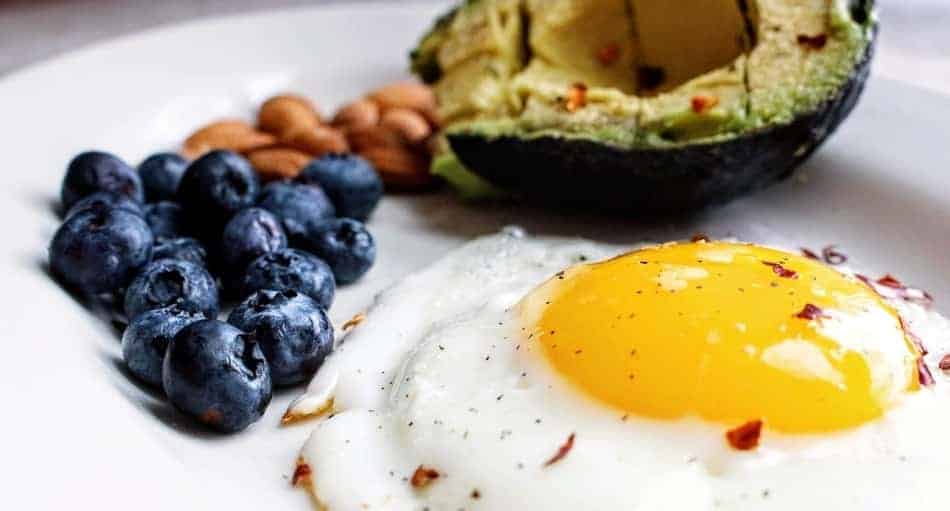
Calorie Deficit vs Keto Diet
In general, the calorie deficit is a state of the body where you consume fewer calories than the body requires. On the other hand, if you eat more calories than your body needs you’re in a calorie surplus. Another name for calorie deficit is negative energy balance.
For example, if your body needs 3000 calories per day to maintain your current weight, simply reducing 300-500 calories will put you into a deficit.
On the other hand, the ketogenic diet is a high-fat, low-carbohydrate, and moderate-protein diet, which helps to increase insulin sensitivity and promote weight loss.
What is insulin sensitivity? Insulin sensitivity refers to how responsive is the body to glucose from the food. High insulin sensitivity means the body can efficiently use insulin to redistribute the glucose from the blood. Low insulin sensitivity (insulin resistance) means the body can’t use glucose efficiently for energy.
If we compare the two, the ketogenic diet works by creating a calorie deficit. Keep in mind that you can be in a calorie deficit on any food, regardless if you eat carbs or not.
Calorie Deficit or Keto For Weight Loss
In the short term, both calorie deficit and keto are effective for weight loss because they prioritize consuming nutrient-dense and minimally process foods. However, in the long term, the calorie deficit approach is more suitable for people who like to have more variety of food choices in their diet.
I personally don’t like doing keto because I always feel more hungry if I only eat meat, eggs, and fats. On the other hand, foods that have high satiety score like potatoes or oatmeal helps me to stay fuller for longer.
HOWEVER.
Dr. Alexandra M Johnstone from the Rowett Research Institute in Aberdeen has documented seventeen obese men and the effect of a high protein keto diet on satiety and hunger levels.
The results showed that “In the short term, high-protein, low-carbohydrate ketogenic diets reduce hunger and lower food intake significantly more than do high-protein, medium-carbohydrate nonketogenic diets” (Johnstone, Alexandra M et al. 2008).
Is the keto diet better than calorie deficit? Overall, the calorie deficit is better than keto for weight loss because calorie deficit allows for more food choices, which is more realistic to continue calorie restriction in the long term. On the other hand, the keto diet is limited to mainly meat and dairy, which not only can get boring but also more expensive.
Calorie Deficit with Keto Diet
You can do a calorie deficit with a ketogenic diet together for weight loss because it leads to reduced postprandial glycemia (lower sugar levels after meals). Plus, some studies suggest that carbohydrate restriction can also increase energy expenditure.
Dr. Cara B Ebbeling from Harvard Medical School in Boston documented 164 adults and the effects of a ketogenic diet on energy expenditure.
The results have shown that those assigned to a low-carbohydrate group compared with a high-carbohydrate diet had a higher energy expenditure of 200–250 calories per day (Ebbeling et al. 2018).
Here are some benefits of doing calorie deficit with keto:
- Increased ketone bodies production – Keto works by switching from using glucose to utilizing fatty acids and ketone bodies, and once the body enters into a caloric deficit, the weight loss will exceed weight gain.
- Helps with Type 2 diabetes – Multiple studies have shown that “Ketogenic diets depress appetite, promote weight loss, reduce blood glucose values, and decrease HbA1c in the short term” (Westman et al. 2008).
- Helps with Alzheimer’s disease – A 12-week, weight-maintaining ketogenic diet intervention improved cognition in subjects with mild-to-moderate (Taylor et al. 2017).
- Helps with Non-alcoholic Fatty Liver Disease – 60 to 80% of hepatic triacylglycerol comes from adipose tissue (source). A ketogenic diet and calorie deficit can help with Non-alcoholic Fatty Liver Disease by reducing intrahepatic fat and lowering insulin resistance.
On the flip side, some studies have shown that low-carbohydrate diets have negative effects on plasma lipid concentrations, where after 6 months of diet, over 30% of participants had elevated LDL-C.
Another reason why I don’t practice a ketogenic diet during the calorie deficit is that carbohydrate restriction can often lead to a lack of vitamins, minerals, fiber, and phytochemicals found in fruits, vegetables, and whole grains.
This include:
- thiamin
- folate
- vitamin A
- vitamin E
- vitamin B6
- calcium
- magnesium
- iron
- potassium
Of course, you can always take multivitamins if necessary to combat these imbalances.
Keto Diet Without Calorie Deficit
One of the reasons people start doing keto as an opposite to a regular calorie deficit is it seems to be easier to just completely eliminate one macronutrient group and don’t worry about calories. However, does calorie deficit matter on Keto?
In short, the calorie deficit matter in keto because any diet that is designed for weight loss works by reducing consumed calories and creating a negative energy balance. Even when you do keto but you stay in the calorie surplus, you can gain weight.
People can get misled by the information that you don’t need to eat less to lose weight, however, any hypocaloric diet works only by caloric deficit.
Does keto work without a calorie deficit? In general, the Keto does work without a calorie deficit, meaning you can get into nutritional ketosis without a negative energy balance. However, you cannot lose weight on keto without being in a caloric deficit because for weight loss to occur body needs to burn more calories than it consumes.
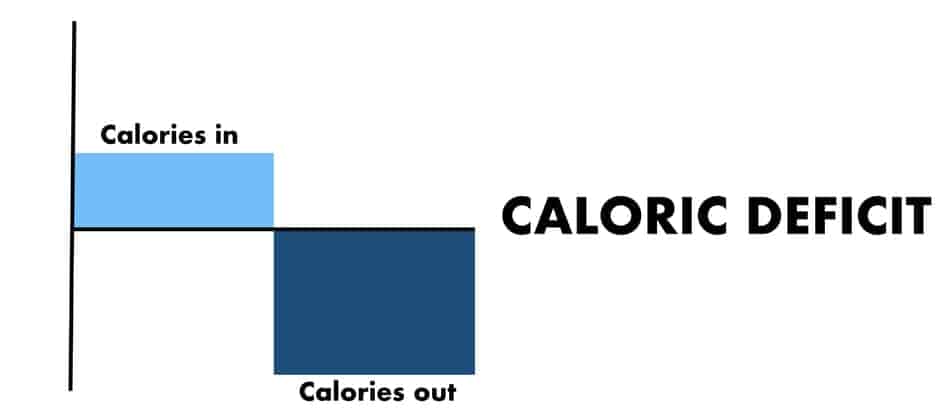
There are plenty of benefits from being on the ketogenic diet, without being in a caloric deficit. In the medical world, a ketogenic diet had a place as a therapeutic diet for pediatric epilepsy.
What is pediatric epilepsy? In short, pediatric epilepsy is a brain disorder that is characterized by recurrent seizures (sudden and uncontrolled electrical disturbances) in kids.
Classic pharmacological treatment only works with limited effectiveness, therefore a ketogenic diet is been useful for people with difficult-to-treat epilepsy (source).
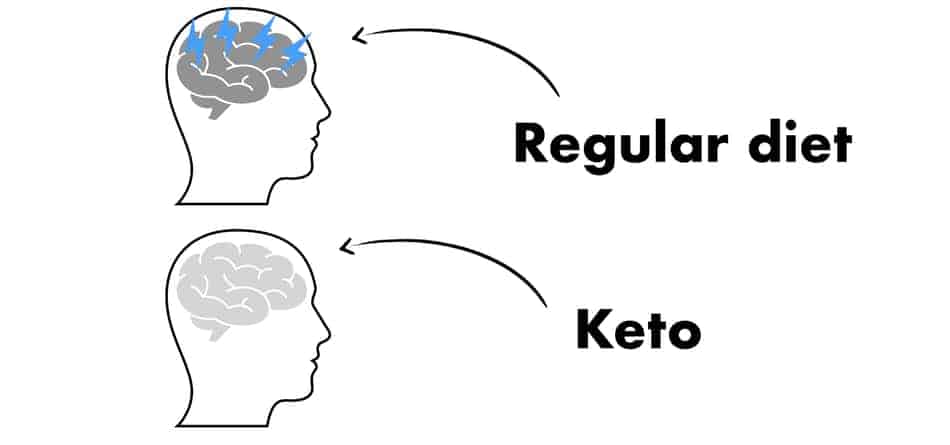
Today the main reason why people embark on keto is to lose weight.
And with the effect of consuming predominately fats and almost no carbs, our metabolically flexible body starts to adapt and utilize fatty acids in the process called gluconeogenesis (creating glucose from non-glucose materials) and ketogenesis (ketone bodies formation) (source).
See the graph below.
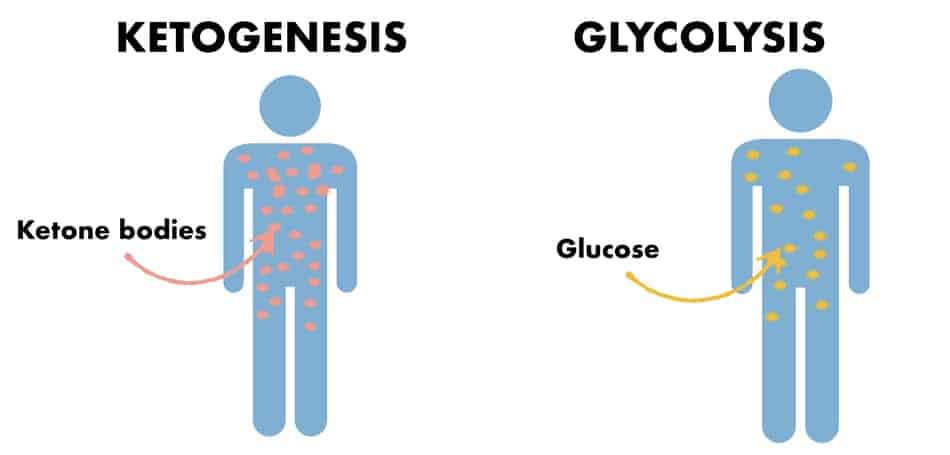
As you can see above, the body creates ketone bodies, which are then used for energy (instead of glucose). However, this process doesn’t mean we gonna lose weight. It just means we can use different sources of energy than glucose.
Can you lose weight on keto without a calorie deficit? As a whole, you cannot lose weight on a keto diet without being in a calorie deficit. The keto diet leads to gluconeogenesis and ketogenesis primarily by consuming high fats and very low carbohydrates. However, despite being in ketosis, to lose weight you need a caloric deficit.
In other words, being on keto is not enough to drive weight loss.
Keto works because of caloric deficit, not because of gluconeogenesis or ketogenesis. It means you need to be eating fewer calories than your body needs, so it can start using the excess that is already stored.
I’ve heard a great analogy on one of the Dr. Peter Attia podcasts recently regarding weight loss. If your car is overflowing with petrol because you’ve poured too much into the tank, to the point where it starts to overflow, you cannot keep on refueling it 3 times a day.
You need to stop refueling and keep driving.
Which is exactly how the diets work.
But people get uncomfortable with hunger so they want to believe there is some magic trick that can be done or some magic ratio of foods that will make us lose weight without feeling hungry.
But the reality is so different.
To have a lean body for life, you need to be able to stay in touch with your hunger signals and understand that hunger is not an emergency.
It’s just a feeling.
And the more often you will expose yourself to feeling hungry, even for a moment, the better your results will be (source).
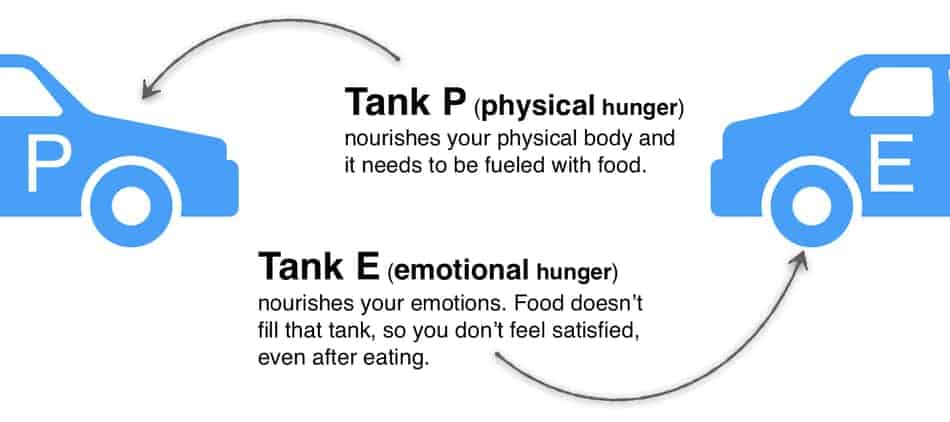
That’s why intermittent fasting has been so life-changing for many people. Not because of ketosis. No because of some magic ratio of the fasting period and eating window.
It works simply because you eat less food. And the longer you don’t eat, the more you get comfortable with hunger.
And once you realize that hunger is as natural as breathing, it will transform your point of view on weight loss forever. To find out more about how to get more comfortable with hunger, check out my article about doing intermittent fasting.
Calorie Deficit vs Ketogenic Diet: Which one is better?
As a whole, the keto diet is easier than calorie deficit because it does not require measuring the food or counting calories. However, in the long term, calorie deficit is better than keto because it helps to stay more consistent and maintain results for longer.
Of course, doing keto does not mean you can eat what you want.
You cannot eat unlimited calories on keto because excess calories will lead to weight gain, despite being in ketosis. For weight loss to happen, the body needs greater calorie expenditure than calories consumption. Therefore, unlimited calories on keto will lead to a positive energy balance.

So there is a big discrepancy between doing keto versus doing keto for weight loss. That is the main underlying issue with the marketing and advertisement of keto (or any weight loss diet).
Because it is misleading to belief that you can eat as much as you want, as long as you stay away from specific food items.
This is total nonsense because to lose weight on keto you need to be in a caloric deficit. That’s why the promise of “eating what you want” can be deceptive. At the same time excellent selling point because nobody likes dieting and feeling hungry all the time.
So the story that you can eat what you want without being hungry is very attractive.
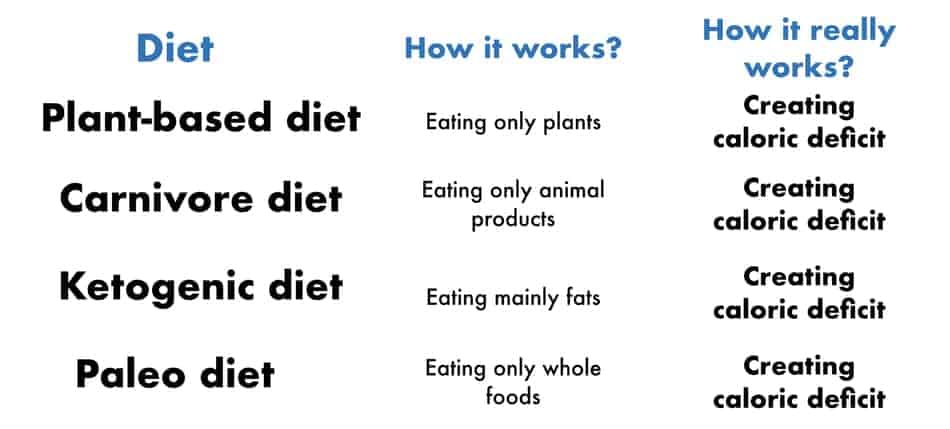
But to lose weight, there is no other way around it.
You need to be in a caloric deficit (source). And caloric deficit means you gonna feel hungry at some point. Regardless if you’re doing keto, Atkins, paleo, plant-based, zone, or intermittent fasting.
But feeling hungry is subjective. It’s a perception rather than a state. This means it can be trained or at least get accustomed to. But no one is teaching people how to get comfortable with hunger.
It’s better to promise something that is easy, ready for you, and effortless.

Because if they would, nobody would be doing keto anymore. If you’re more comfortable with hunger, this means you can eat foods that you like, not because they are “keto” or “paleo”.
Just to be clear, I’m not picking up on keto. It applies to any diet. Weight loss happens only by eating less food. So keto works because of caloric deficit, not because of ketosis.
Related article: Does Calorie Deficit Work Without Exercise?
In Conclusion
You cannot lose weight on any diet without being in a caloric deficit. A caloric deficit means the body receives less energy than it needs on a daily basis. So because we are metabolically flexible, our body switches to using other resources already available (stored body fat).
Regardless if you’re doing a diet high on meat, plants, or the combination, any diet that creates weight loss works by a calorie deficit. With keto, there is no exception. The Keto diet works because of a calorie deficit that creates a negative energy balance.
So the most important task while on any diet should be to understand that caloric deficit is part of the game. You cannot drop a large amount of weight without calorie restriction and feeling hungry.
Focusing on how I can get more comfortable with hunger pangs, instead of which diet works best will not only transform the body but also the relationship with food.
